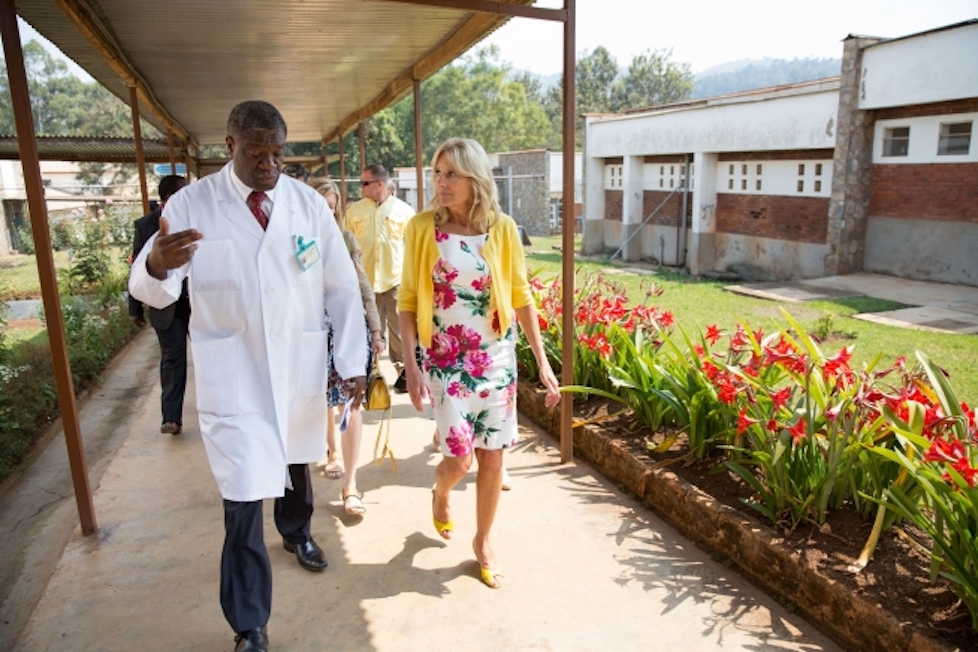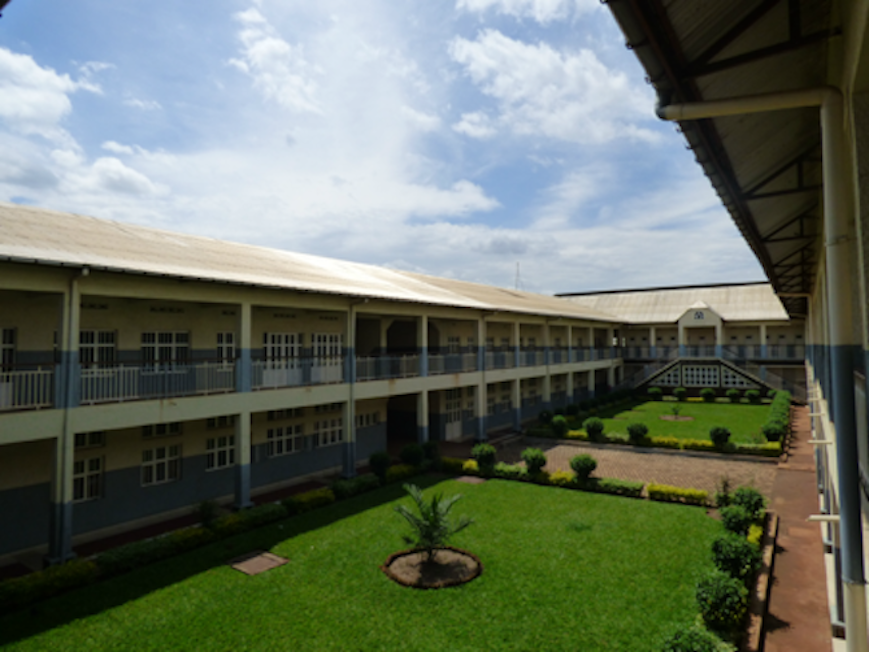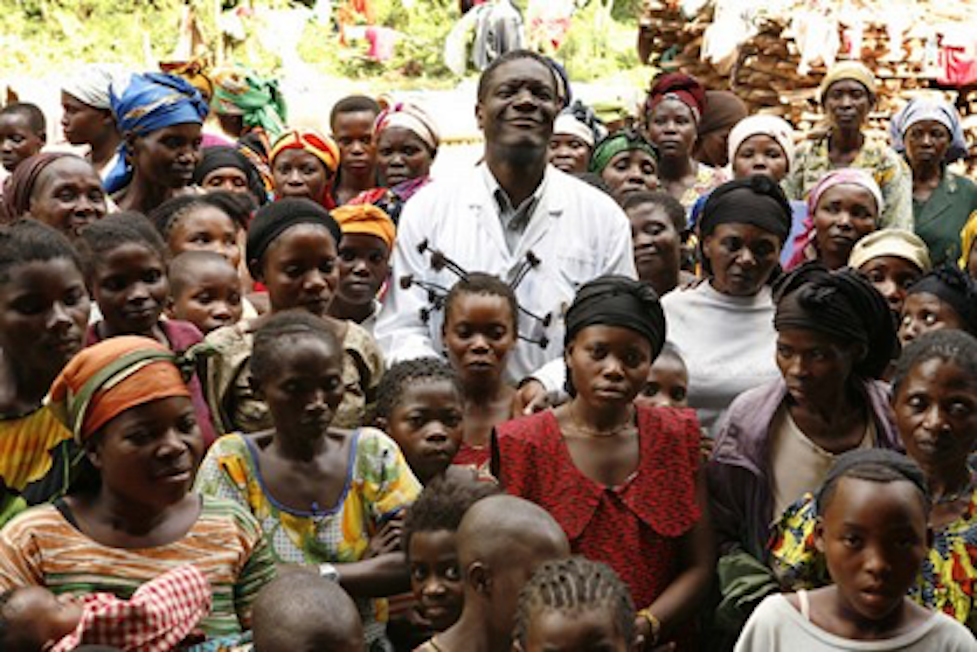Denis Mukwege
Background to the Crisis
For almost its entire history as an independent nation, the Democratic Republic of the Congo (DR Congo) has been plagued by political instability and armed conflict. The Congo Civil Wars—sometimes referred to as the “First African World War”—began in 1996 and have involved ![]() as many as nine African nations and dozens of armed groups, and have resulted in the deaths of 5.4 million people.
as many as nine African nations and dozens of armed groups, and have resulted in the deaths of 5.4 million people.
The increasing use in the DR Congo of sexual violence as a weapon of war and terror has made it the “rape capital of the world” and “the worst place in the world to be a woman.” In 2008, a former commander of a UN peacekeeping mission said of the DR Congo that “it is now more dangerous to be a woman than to be a soldier.” One estimate claims that 1,000 rapes take place every day—as many as 30 percent of which involve sexual torture and mutilation—but all estimates are too low, since many rapes go unreported. Access to medical and psychological support is limited and rape victims suffer strong social stigma.
Additional Information about Rescuer
Mukwege has explained why he decided, when he was a child, to become a doctor:
![]() "I was inspired to become a doctor in my childhood, when my father, who was a Pentecostal minister, took me with him to visit a child of about my age, who was sick. Before we left, he prayed for the child. I asked him why he did not give him medicine as he does for me when he prays for me. He responded that he could not provide medicine to all in need, as he was not a doctor. So, that day, I told my father that I would become a doctor in order to heal and provide medicine in addition to the prayers he and I would be making for the sick.”
"I was inspired to become a doctor in my childhood, when my father, who was a Pentecostal minister, took me with him to visit a child of about my age, who was sick. Before we left, he prayed for the child. I asked him why he did not give him medicine as he does for me when he prays for me. He responded that he could not provide medicine to all in need, as he was not a doctor. So, that day, I told my father that I would become a doctor in order to heal and provide medicine in addition to the prayers he and I would be making for the sick.”
In 1989, after completing his initial medical training in Burundi, Mukwege took a position at the Christian Hospital of Lemera, in his home province of South Kivu. He had specialized in podiatry, but at the hospital he witnessed women being brought from rural areas on the back of mules after botched childbirths. Many of these women died, and those who survived would often leave with serious genital lesions. Mukwege decided to change the focus of his medical career, and in 1984 he won a scholarship from the Swedish Pentecostal Mission to specialize in gynecology at the University of Angers in France. He returned to Lemera Hospital, where he trained a staff in gynecology and obstetrics. In 1996, the hospital was destroyed in the First Congo War, and several patients and nurses were murdered. Mukwege survived the attack and took refuge in Nairobi.
In addition to medical treatment, the Panzi Hospital provides access to legal representation and support service so that women can rebuild their lives and communities. No woman is turned away because of an inability to pay for treatment.
Denis Mukwege has been the recipient of numerous awards, including the European Union’s Sakharov Prize for Freedom of Thought, the Seoul Peace Prize, the Gulbenkian Prize, the UN Human Rights Prize, and the French Legion of Honor. He has been awarded honorary doctorates at several universities and was named Fortune Magazine’s 35th World Greatest Leader of 2016. Time Magazine called him an “Icon” in placing him on its list of the 100 Most Influential People in the World. Since 2013, he has been nominated three times for the Nobel Peace Prize.
Mukwege and the Panzi Hospital are profiled in a segment of Episode 7 (“Platon: Photography) of Season 1 of the Netflix Original series “Abstract: The Art of Design.” The segment took three years to plan and complete. He is also the subject of a 2015 documentary, “The Man Who Mends Women.” The DR Congo has banned the film, calling it a defamatory portrait of the country's military.
Timeline
1955 Born in Bukavu, South Kivu, Belgian Congo (today the Democratic Republic of Congo, or DR Congo)
1976 Begins medical studies in Burundi
1983 Takes a position at the hospital in Lemera, South Kivu
1984 Begins medical studies at University of Angers (France)
1989 Establishes obstetrics and gynecology services in the hospital in Lemera
1996 Civil war erupts in Zaire (today the DR Congo); hospital in Lemera is destroyed
1999 Founds the Panzi hospital in Bukavu as a clinic for gynecological and obstetric care, but almost immediately focuses on surgery and post-operation treatment for tens of thousands of survivors of sexual violence
2012 (September) In a speech at the United Nation, condemns impunity for mass rape in the DR Congo and citizens the Congolese government and other countries for failing to intervene on behalf of sexual violence against women as a strategy of war
2013 (14 January) Returns to the DR Congo
2015 (24 September) Awarded degree as doctor of medical sciences at the Free University of Brussels
2015 European release documentary "The Man who Mends Women: The Wrath of Hippocrates"
Primary and Other Sources
Baker, Aryn. “‘When I Sing, the Bad Memories Disappear’.” Time, 15 Feb. 2017. http://time.com/platon-congo-denis-mukwege/.
Beiser, Vince. “This Doctor Is Helping Congo’s Thousands of Rape Survivors.” TakePart, 14 Sept. 2015. http://www.takepart.com/article/2015/09/14/panzi-hospital-drc-denis-mukwege
“Denis Mukwege Interview | Part 1 | Skavlan.” YouTube, uploaded by Skavlan, 24 Oct. 2014, https://www.youtube.com/watch?v=zZbzlKhaRok.
“Dr. Denis Mukwege.” Panzi Foundation, accessed 10 Feb. 2017, http://www.panzifoundation.org/dr-denis-mukwege/.
The Man Who Mends Women. Directed by Thierry Michel, Les Films de la Passerelle, 2016, http://mukwege-themovie.com/lefilm.html.
“Message from Dr. Denis Mukwege.” YouTube, uploaded by Physicians for Human Rights, 7 Oct. 2013, https://youtu.be/nz_wGQNBJYc.
Podur, Justin. “Healing in the Congo: A Profile of Dr. Denis Mukwege”. The Progressive, vol. 73, no. 11, Nov. 2009, p. 29. Gale Academic OneFile, sandhills.idm.oclc.org/login?url=http://go.galegroup.com/ps/i.do?p=AONE&sw=w&u=uni_rodit&v=2.1&id=GALE%7C...



